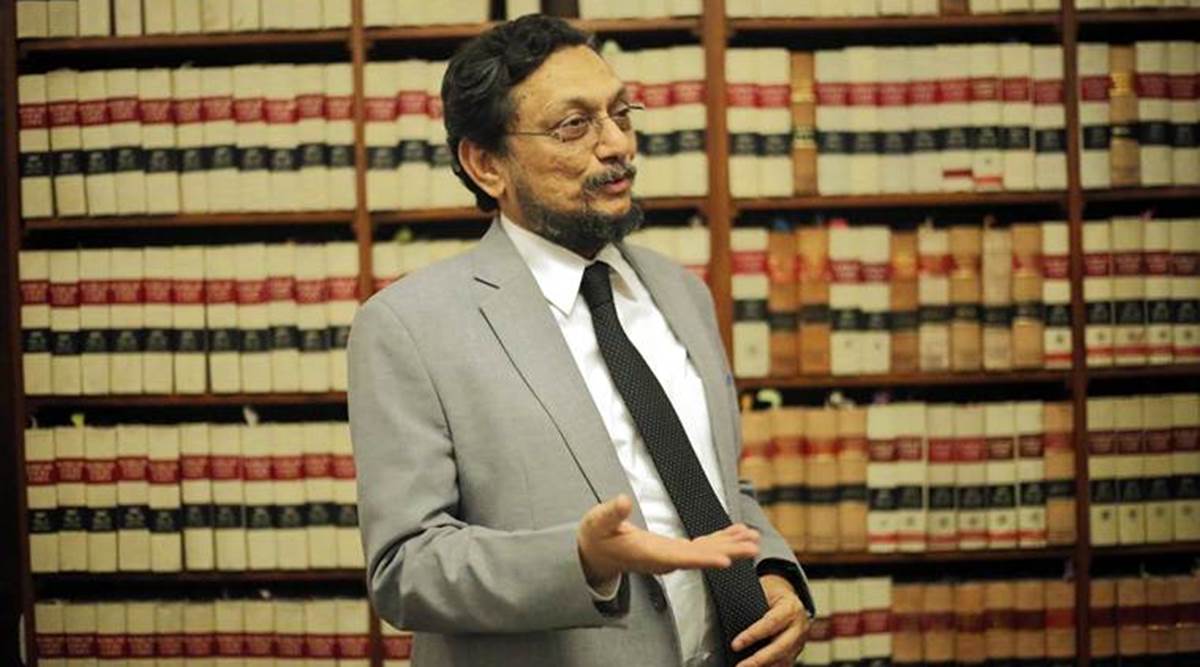
Updated: November 27, 2020 8:32:36 am
 CJI Bobde said that “very early”, the Supreme Court realized that the effects of the virus had the “potential to threaten the rule of law itself and completely block access to the justice system.”
CJI Bobde said that “very early”, the Supreme Court realized that the effects of the virus had the “potential to threaten the rule of law itself and completely block access to the justice system.”
Chief Justice of India SA Bobde said on Thursday that “the pandemic has been the biggest challenge in bringing unfettered justice to the common man,” and urged the government to seek solutions to a “new kind of inequality” that it has emerged out of “technology-dependent” justice.
The CJI spoke at an event organized by the Supreme Court to mark Constitution Day attended by President Ram Nath Kovind and Law Minister Ravi Shankar Prasad.
In his welcoming address, Justice NV Ramana, the second highest-ranking judge on the Supreme Court, spoke of the “unfounded criticism” facing constitutional institutions and said that the only response was to work hard to fulfill constitutional duty.
“There is a tendency to unfair and unfounded criticism against our constitutional institutions. Such criticisms destroy public trust, damaging the foundations of democracy. The only response to this criticism is to work hard to fulfill our constitutional duty. Nothing should deter us, ”said Judge Ramana.
Opinion | Shivam Singh writes: In defense of the Supreme Court
In his speech, Kovind said that “the notion of justice implies access to justice.” “Improving access to justice for all is a work in progress … And in this regard, I am pleased that the higher judiciary has been making its judgments available in more and more regional languages,” he said.
CJI Bobde said that “very early”, the Supreme Court realized that the effects of the virus had the “potential to threaten the rule of law itself and completely block access to the justice system.”
“There had to be an instantaneous mutation in the justice administration system and the choice was very clear. Or to switch to virtual hearing or the other option to close the courts entirely. Throughout the current pandemic, courts had to grapple with difficult situations involving migrant workers, woefully inadequate facilities for treating dying men and women, corpses not being buried for fear of infection, inadequate hospital beds and unaffordable treatment costs, ”he said. said.
“Listening to issues through video conferencing has led to a new kind of inequality. It was difficult to anticipate this and it is extremely difficult to deal with it because we are stuck in a bind. This inequality arose because access to justice has become dependent on technology. It has become difficult for those without access to technology to access justice, ”he said, while appealing to Prasad, who is also an IT minister, to find a solution.
India’s Attorney General KK Venugopal said more innovations could be implemented in videoconferencing hearings such as live streaming. “I can imagine that one day, with the presence of the Minister of Justice, he is also in charge of telecommunications, where each subordinate court in this country, each Superior Court, will have videoconference, video transmission,” he said.
Prasad noted that despite the challenge, “about 50 lakh of cases have been heard from the Supreme Court, the High Court and the District Court during this period” digitally.
The Justice Minister also criticized criticisms of the judiciary that “go beyond decorum” and terms such as “judicial barbarism.”
“Lately, I see a lot of criticism of the judiciary. The Indian judiciary from day one has always welcomed criticism. Why not? There has been very recurrent criticism of the collegiate and the appointment of judges, on which some of us also share our opinions. But that’s a different part if these institutions are properly respected, ”he said.
“But lately, I see a… disturbing trend. The tendency is that some people have an opinion on a particular case that is going to be presented, or that if it has been presented, a judgment must be made. There are narratives in the newspapers, there are campaigns on social media about what kind of trial should come. And if the judgment disagrees with that, then there are more radical criticisms. I would say that if the judiciary has to be independent, the judges have to have complete freedom to decide their cases according to the law … statements like judicial barbarism are totally unacceptable, regardless of the stature of those who mention these things about our judiciary, “he said.
© The Indian Express (P) Ltd
.